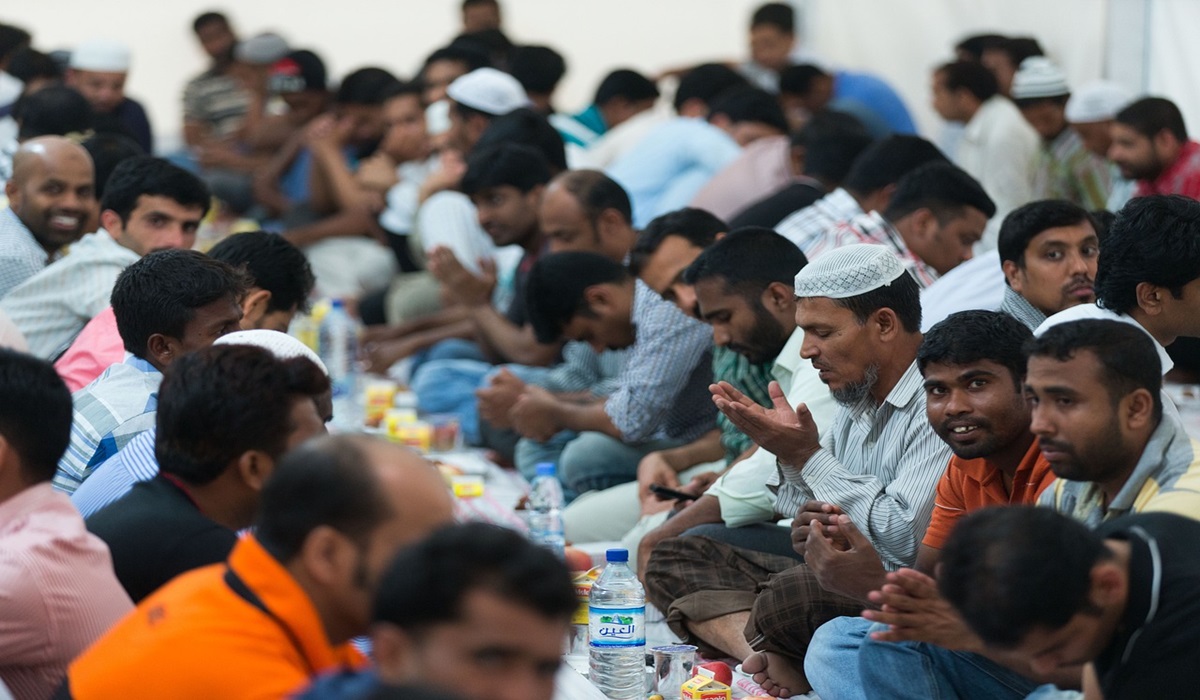Image credit, Ahmad Ardity
Eid al-Fitr, often simply referred to as Eid, is a significant religious holiday celebrated by Muslims worldwide. It marks the end of Ramadan, the holy month of fasting, prayer, reflection, and community. This joyous occasion holds immense cultural and spiritual importance, bringing families, friends, and communities together in celebration.
Eid al-Fitr holds profound significance in Islam as it marks the completion of a month-long journey of self-discipline, devotion, and spiritual growth. Ramadan, the ninth month of the Islamic lunar calendar, is observed by Muslims worldwide as a time of fasting from dawn until sunset, abstaining from food, drink, smoking, and other physical needs. It is a period of deep reflection, increased prayer, and acts of charity. Through fasting, Muslims seek to purify their souls, develop self-discipline, and strengthen their connection with Allah.
Eid al-Fitr begins with the sighting of the new moon, marking the end of Ramadan and the beginning of Shawwal, the tenth month of the Islamic lunar calendar. The exact date of Eid may vary depending on the lunar calendar and the sighting of the moon in different parts of the world. However, it typically lasts for three days.
The day of Eid starts with a special prayer known as the Eid prayer, which is performed in congregation at mosques or designated prayer grounds. Men, women, and children gather dressed in their finest attire, expressing gratitude to Allah for the strength and blessings received during Ramadan. The Eid prayer is followed by a sermon delivered by the Imam, emphasizing the significance of Eid, gratitude, and the importance of continuing good deeds beyond Ramadan.
After the prayer, families and friends come together to exchange greetings and well-wishes, often saying “Eid Mubarak” which translates to “Blessed Eid.” This is followed by a festive atmosphere filled with feasting, gift-giving, and acts of charity. It is customary for families to prepare special dishes and sweets, sharing meals with loved ones and neighbors. The spirit of generosity is emphasized during Eid, with Muslims encouraged to give Zakat al-Fitr, a form of charity given to the less fortunate before the Eid prayer.
Eid al-Fitr is celebrated with various cultural traditions and customs that vary from region to region. In addition to prayers and feasting, many communities engage in activities such as visiting relatives, exchanging gifts, and wearing new clothes. In some cultures, it is customary to decorate homes, streets, and public spaces with lights, lanterns, and colorful decorations.
Moreover, Eid serves as an opportunity for reconciliation and forgiveness, with individuals resolving conflicts and extending olive branches to mend relationships. It is a time of unity and solidarity, transcending cultural and social boundaries as Muslims from diverse backgrounds come together to celebrate their faith and shared values.
Eid al-Fitr is a time of joy, gratitude, and celebration for Muslims around the world. It symbolizes the culmination of Ramadan, a month of spiritual rejuvenation, self-discipline, and devotion. As families and communities gather to pray, feast, and exchange greetings, Eid serves as a reminder of the importance of faith, generosity, and compassion. In a world filled with challenges and uncertainties, Eid al-Fitr offers a moment of unity, hope, and renewal for Muslims everywhere.









